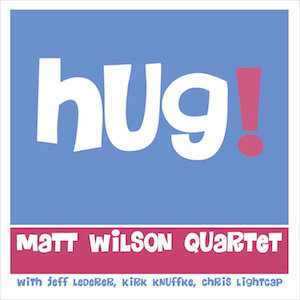Label: Cabinet of Wonder, 2019
Personnel - Michelle Lordi: vocals; Donny McCaslin: tenor sax; Tim Motzer: guitar, electronics; Matthew Parrish: acoustic bass; Rudy Royston: drums.
Imbued with jazz and country-rock ambiances, Break Up With the Sound, the fourth feature-length album by singer/composer Michelle Lordi, steps up her previous recordings by expanding stylistic horizons and employing a much more exciting band. Just to get this straight, revered tenor saxophonist Donny McCaslin and guitarist Tim Motzer show off their improvisational artistry, while the rhythmic foundation is provided by bassist Matthew Parrish, who also produced and arranged, and the super-reliable drummer Rudy Royston.
The group gets the show on the road with “Poor Bird”, the most engaging of Lordi originals, which was written as a response to Hank Williams’ “I’m So Lonesome I Could Cry” (also included in the program). Swift bass influxes are gently escorted by the subtle effect-drenched guitar washes that run in the background, leading to a groove in a gripping additive 6+5 tempo. Lordi’s voice echoes personality and McCaslin drops down exciting solos in between the sung choruses. He grooves with abandon, assembling phrases with notes that slick and jump easily and logically. His mighty improvisational powers, tinctured with an advanced side slipping technique, are also on display on “Double-Crossed”, a Lordi/Motzer-penned pop song with a memorable, singable chorus; on the balladic standard “Lover Man”, here accelerated in pace and propelled by a dogged groove; and on “Red House Blues”, which, not being as strong as the aforementioned pieces, is laid down with harmonic restraint and floating guitar soundscapes.
One of the strongest aspects in Lordi’s vocalization lies in her ability to eschew unnecessary stretches and frivolous fireworks. The narratives are straightforward and brought with the required amount of rawness. Her self-penned “Before”, a beautiful folk rock excursion, is a good example of what I've just said. This tune is elevated by Motzer, effective in delivering emotional cries after opening with an able fingerpicking on the acoustic guitar. Again, his bluesy guitar chops can be traced, right there in the middle of the sweet country-pop melancholy of “Wayward Wind”.
If the two ballads about loneliness - The Rolling Stones’ “No Expectations” and the above-mentioned “I’m So Lonesome” - don’t really triumph, then Cole Porter’s waltzing theme for the 1956 romantic musical comedy High Society - “True Love” - satisfies by flowing breezily.
Revealing competence and boldness as a composer, Lordi should predominantly focus on original material from now on.
Grade B+
Favorite Tracks:
01 - Poor Bird ► 03 - Double-Crossed ► 07 - Lover Man








































